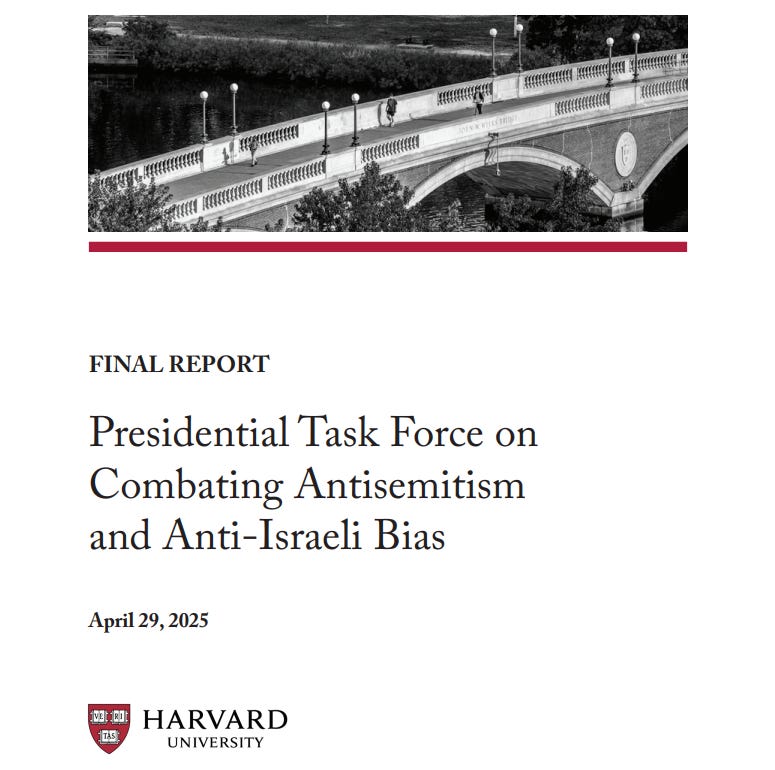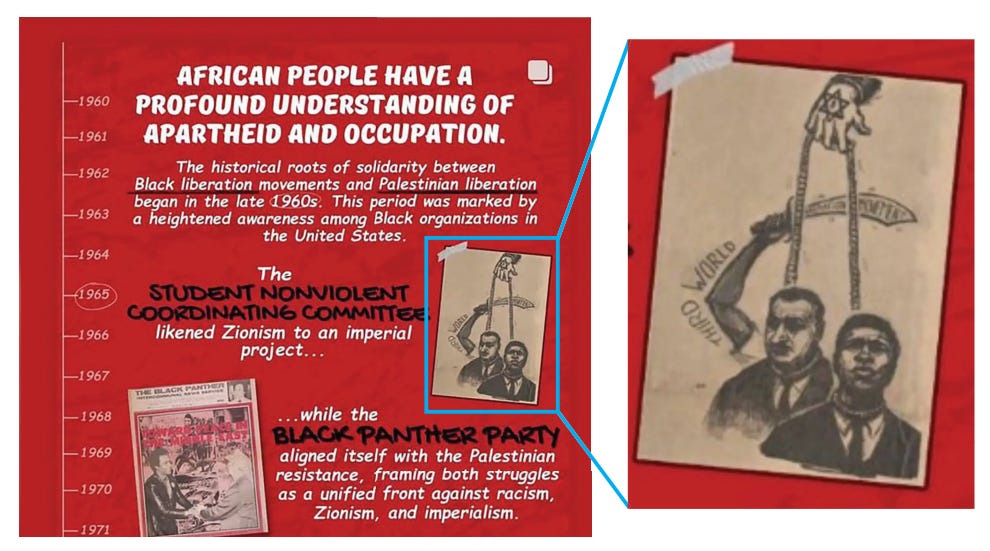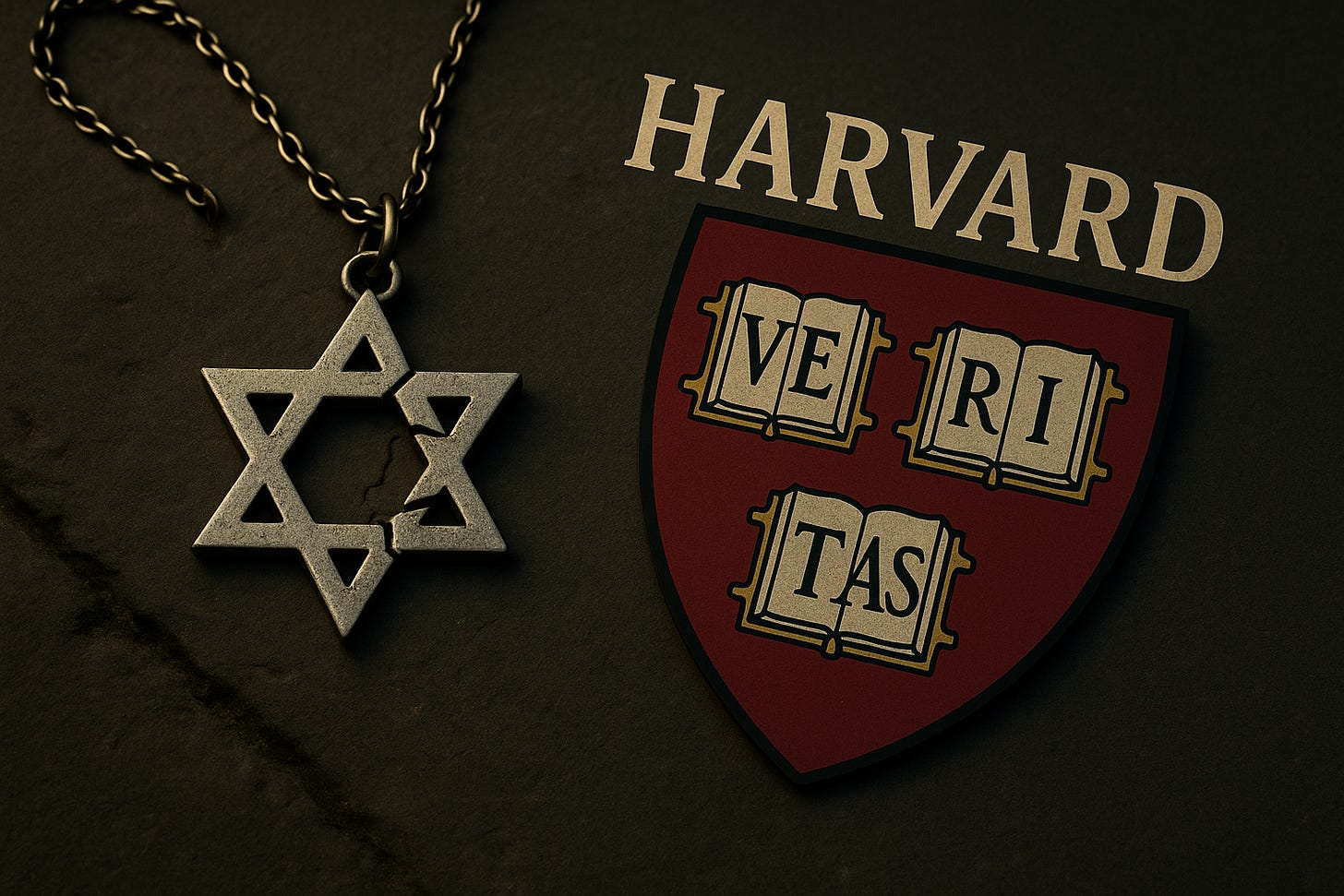Unpacking the Harvard Antisemitism Task Force's Final Report
A look at the university's long-awaited report, detailing how Jewish and Israeli students faced censorship, social pressure, and systemic bias at one of the world’s most prestigious institutions.
On April 29, Harvard University released the final report of its Presidential Task Force on Combating Antisemitism and Anti-Israeli Bias. The document spans over 300 pages and was developed after months of listening sessions, interviews, and internal review. It offers a comprehensive and often unsettling account of the experiences of Jewish and Israeli students, faculty, and staff across Harvard’s campuses over the past academic year.
While the report includes constructive recommendations and acknowledges positive developments at the University, it also details a number of specific incidents that raise serious concerns about the institution’s ability to maintain an inclusive academic environment. Three cases in particular stand out for the clarity with which they illustrate the breakdown of norms around open discourse, respect for identity, and equal treatment.
1. A Holocaust Story Deemed Inappropriate for Mentioning Israel
A Jewish student scheduled to speak at a Harvard fellowship forum during the 2023–24 academic year prepared remarks that referenced their grandfather’s efforts to rescue others during the Holocaust. As the student explained, the rescue missions involved escape to what was then the British Mandate of Palestine — a historical fact that was not framed as a political statement.
According to the report, the student was told by two student organizers that they could not include this portion of the story in their speech because it “involved Israel.” The organizers described the narrative as “not tasteful” and claimed it lacked balance because it did not address Palestinian displacement. When asked what was inappropriate, one organizer allegedly laughed in response.
Eventually, the student was allowed to reference the rescue itself but was required to remove any mention of the British Mandate of Palestine as the destination. The Task Force cited this example as illustrative of a broader trend: Jewish and Israeli students being discouraged from expressing aspects of their identity or history due to how others might interpret or respond to them politically.
2. Israeli Student Excluded from Academic Collaboration
In another case detailed in the report, an Israeli student was assigned to work with a peer on a group project. The second student objected to the partnership, stating that their political beliefs — described as “pro-Palestinian” — precluded working collaboratively with an Israeli.
The faculty member overseeing the course granted the request, reassigning the students to different groups. Notably, the class had no connection to the Middle East or related political topics.
The rationale, as described in the report, was that a student who supported the cause of an oppressed group should not be required to collaborate with someone they viewed as part of an “oppressor group.” The Task Force found this justification troubling and inconsistent with Harvard’s academic and community standards.

The report also points to a broader social dynamic on campus that reflects similar pressures. Across Harvard, non-Jewish students with no personal connection to Israel told the Task Force they had been pressured to end friendships with Israeli students. American Jewish students described being expected to publicly disavow Israel in order to be accepted — to prove that they were, in the words of one student, “one of the good ones.” Those who refused reported facing social consequences. The Task Force interpreted this behavior as an attempt to deny the humanity of Israelis by treating them not as fellow members of the academic community, but as pariahs.
3. Use of a Historically Antisemitic Cartoon in Campus Discourse
In February 2024, a group of Harvard-affiliated students and faculty shared an image on social media that originally circulated in the 1960s. The image showed a hand bearing a Jewish star tightening a noose around the necks of civil rights figures Muhammad Ali and Gamal Abdel Nasser. It was widely criticized at the time, including by prominent Black leaders such as Bayard Rustin and Whitney Young, as overtly antisemitic.

Despite this background, the image was reposted in 2024 by individuals supporting pro-Palestinian causes, apparently unaware — or dismissive — of its history. The Task Force did not speculate on motives but noted that its resurgence reflected either a lack of understanding of antisemitic imagery or the continued use of such materials in political organizing.
Institutional Implications
These incidents do not appear in isolation. Rather, they reflect themes the report identifies throughout the University: students avoiding association with Israel-related topics for fear of social or academic repercussions; concerns that antisemitism is not adequately addressed in official diversity and inclusion training; and reports that political activism on campus has at times created a climate of exclusion for Jewish and Israeli students.
The report takes care not to generalize, stating explicitly that it does not claim the experiences described are universal. But it emphasizes that such patterns, especially when repeated and left unaddressed, are inconsistent with Harvard’s stated values of pluralism, academic freedom, and respectful discourse.
As universities continue to navigate political tensions and identity-based conflicts, the Harvard Task Force report serves as a reminder of the importance of institutional consistency, transparency, and support for all students. It also underscores the risks of allowing ideological frameworks — however well-intentioned — to override the fundamental principles of fairness, inclusion, and scholarly integrity.




What a bizarre conflation to draw a cartoon with Israel's hands around nasser's neck along with Muhammad Ali, Nasser ran wild with the blessings of America since it nationalized the British assets and Eisenhower threatened Britain with crashing the pound if they did not withdraw from Sinai leaving Israel awkwardly alone yet Israel knew to get it in writing from Britain and they did😜
What is left unsaid is whether Harvard will stop critical race theory, the inculcation of which causes these ethnic conflicts . In fact, since the faculty over decades has become imbued with CRT, and tenured faculty control new hires, it will be extremely difficult to change instruction and the poisonous antisemitism at Harvard.